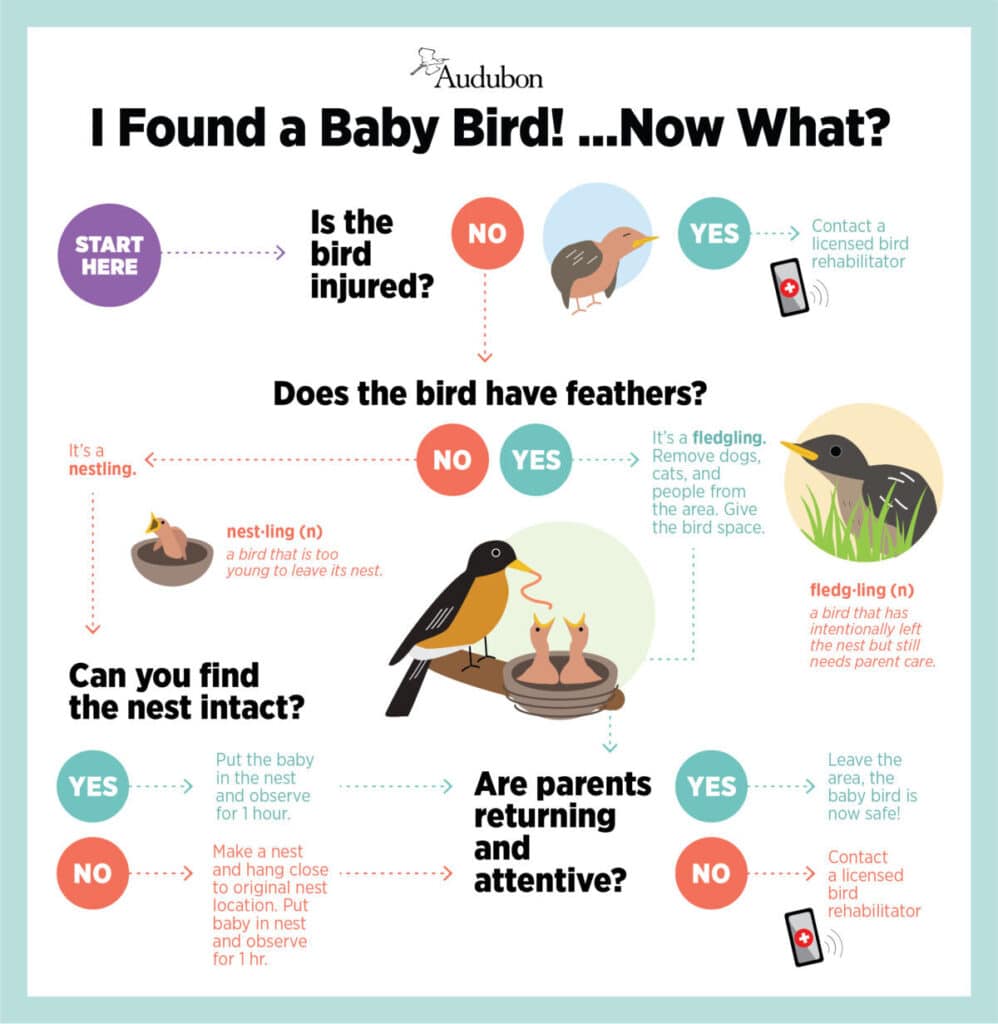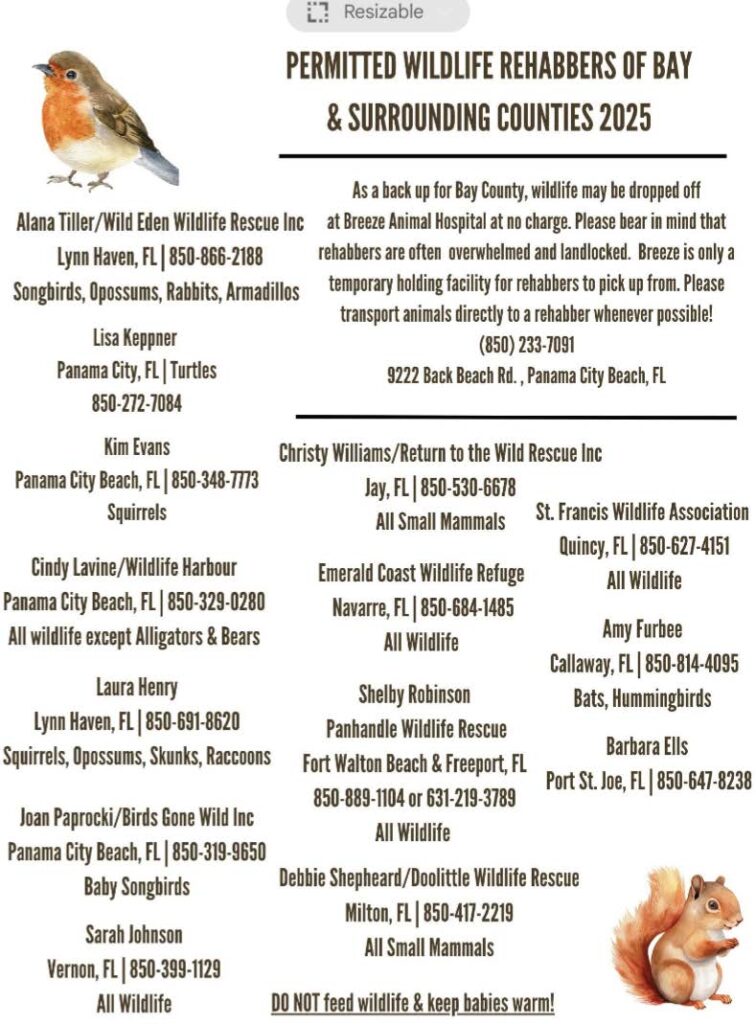Stay In Touch
STAY UP TO DATE ON WHAT'S HAPPENING WITH
THE BAY COUNTY AUDUBON SOCIETY
From birdwatching... to the total environment!

The Bay County Audubon Society is not licensed to rescue or accept injured birds. Nor do we have facilities to rehabilitate injured wildlife.
However, we would like to do everything we can to direct you to locating the proper help for birds or other injured wildlife. If you are already familiar with the general procedures, contact a local Animal Rehabilitator. Note, most of our rehabilitators are volunteers and work from home. Please appreciate they may not always be available.
We sincerely hope the following information will help you determine the best course of action: leave the animal alone, contact the closest certified wildlife rehabilitator, or bring it to a veterinarian (below). The following instructions will provide information on handling and transporting injured birds.
In nature, young animals sometimes become separated from their parents and need help. If the mother’s dead body has been seen or the young one is obviously injured, ill, or starving, intervention is necessary. In many cases, however, when baby birds appear “orphaned” they actually are being well cared for. Over 75% of young animals that are rescued by well-intentioned people do not need help.
To find assistance for injured wildlife, go to the Animal Help Now website, enter your location, and you will be shown a list of animal rehabilitators in your area. Other resources are listed below. Always keep in mind that it is illegal to harass, harm or possess Florida’s wildlife. Enjoy observing wild animals in their natural surroundings from a safe distance, for their sake and for yours.
If you find a baby bird that is not covered with feathers out of its nest:
If you find a fully-feathered baby bird out of its nest:
If you find an obviously orphaned or injured bird:


The Florida Fish and Wildlife Conservation Commission (FWC) works cooperatively with the Florida Department of Health on a wild bird mortality database. This project was initiated to support surveillance for bird die-offs, monitor for West Nile Virus, and is now also being used to monitor for avian influenza. FWC is also interested in monitoring bird electrocutions from power lines and poles so that faulty facilities may be repaired.
If you find a dead bird, please review the information about avian diseases on the FWC website, or call your local FWC regional office. Your reports will assist in tracking the causes of bird mortality and surveying for avian influenza and other avian diseases.
If you suspect a fish, boating, or environmental law violation, report it to FWC’s Wildlife Alert Hotline immediately and document the suspected violation to the best of your ability.
You may use your telephone camera and record a video, photograph any license tags or decals and note the time and apparent details of the violation. This will help the FWC do its job.
STAY UP TO DATE ON WHAT'S HAPPENING WITH
THE BAY COUNTY AUDUBON SOCIETY
The 2024-25 season has ended. We are breaking for the summer. The montly birdwalks at Camp Helen will continue through the summer. The Board will be busy planning for our 2025-2026 activities. Check here often for updates.